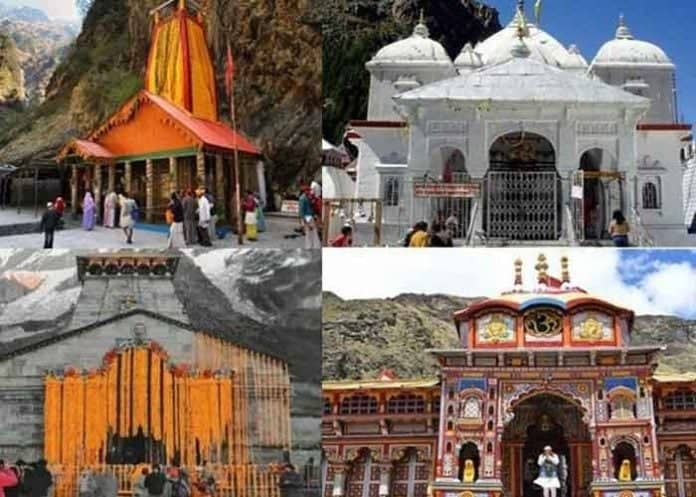The Uttarakhand government inaugurated the winter Char Dham circuit on December 8, 2024. This initiative aims to attract tourists during the off-season winter months. The Char Dham includes four sacred Hindu shrines – Gangotri, Yamunotri, Kedarnath, and Badrinath. Traditionally, these sites experience heavy snowfall, making them inaccessible from late November to early May. However, the winter Char Dham seeks to promote tourism in the region, allowing pilgrims to visit the winter abodes of these deities.
Winter Seats of Char Dham
During winter, the presiding deities of the Char Dham are relocated to lower-altitude shrines. The winter seat for Gangotri is in Mukhba, while Yamunotri’s is in Kharsali, both located in Uttarkashi. Kedarnath’s deity resides at the Omkareshwar Temple in Ukhimath, and Badrinath is hosted at Pandukeshwar in Chamoli. This arrangement allows devotees to continue their pilgrimage during the winter months.
Economic Impact of Char Dham Yatra
The Char Dham pilgrimage contributes to Uttarakhand’s economy. In 2024, over 48 lakh pilgrims visited these shrines, generating substantial revenue. The state tourism department estimates that Char Dham generates more than Rs 200 crore daily. However, winter footfall has been low, with only 15,314 pilgrims recorded by December 30.
Environmental Concerns
Environmentalists have raised concerns regarding the impact of increased footfall on local ecosystems. Activists argue that the winter yatra could lead to overcrowding and degradation of sacred sites. The safety and health of visitors in harsh winter conditions are also critical issues that require attention. The National Green Tribunal has urged the Uttarakhand government to assess the carrying capacity of the Char Dham to ensure environmental protection.
- Char Dham translates to ‘the four abodes/seats’ in Sanskrit.
- Winter seats are located at lower altitudes for accessibility.
- Ravi Chopra previously led a Supreme Court committee on Char Dham.
- Uttarakhand’s Char Dham yatra attracts millions annually.
- Environmentalists advocate for sustainable tourism practices.
Historical Significance of Char Dham
The Char Dham holds immense religious significance in Hinduism. Adi Shankaracharya established the four primary pilgrimage sites – Badrinath, Dwarka, Puri, and Rameswaram. Each location is associated with distinct mythological events and figures. Badrinath is linked to Lord Vishnu, while Rameswaram is to Lord Rama. Dwarka is known as the city of Lord Krishna, and Puri is home to the famous Jagannath Temple. These sites represent the essence of Hindu spirituality and devotion.

Leave a Reply